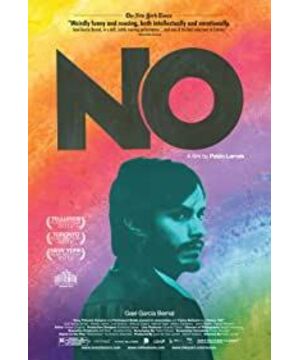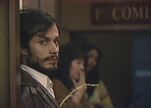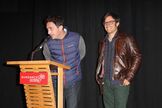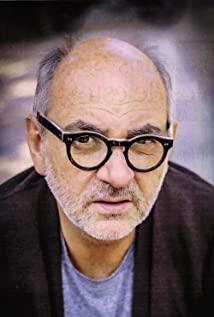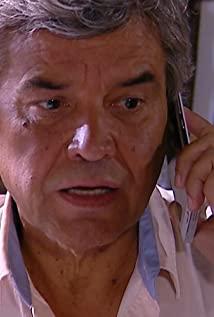This may be the pinnacle of advertisers on the stage of history-using a 15-minute ad to promote the downfall of a dictatorial government.
1. Since there is bread, why should we be free
In 1988, Chileans who had endured the dictatorship for 15 years were about to vote: this time there are only two options for voting, supporting the current President Pinochet's continued re-election vote YES, otherwise vote NO.
The cause of this referendum came from international pressure on the one hand, and from the arrogance of President Pinochet of the military government on the other.
General Pinochet’s arrogance is not without reason: after leading the army to overthrow the weak and economic depression Allende democratic government, he implemented a policy of economic freedom that is difficult to implement even in a democratic country. , Created a wave of "Chile miracles", making Chile the most prosperous and stable country in Latin America at that time. The changes brought about by such an economic freedom policy can be called a successful "reform and opening up" in the context of China.
Therefore, in the eyes of General Pinochet, even if a referendum (election) is held, he will still be able to win the victory, and the opposition is not strong enough. Not only generals think so, but many ordinary people also think so.
Regarding this, Ms. Carman, the actor's nanny in the film, replied when asked why she voted YES:
I am doing well now. My son is in college and my daughter has a job.
Yes, since there is bread and a prosperous life, why should we be free?
This question was left to a group of advertisers invited by the opposition to think about it. Because before the referendum, the YES and NO camps each had 15 minutes of commercials to be broadcast on TV in turn.
In these 15 minutes, the two camps should give voters enough reasons: why they should vote for themselves.
Someone in the YES camp of then President Pinochet said so
If you want to scare people, you have to scare them with their past, their past poverty, long lines to buy bread... But the only thing that interests people is the scramble, and also they know that socialism is miserable. Instead you have a system in which anyone can be rich. Attention!, not'everyone'...'anyone'. You can not lose when all are committed to be that'anyone'. Fear of the past, the poverty of the past, the long lines when buying bread. The only thing people are afraid of is chaos, and they all know that socialism in the past (socialism was practiced in Allende's time) was tragic. Now, people are in a system where anyone can get rich. remember! Not everyone, everyone. When you promise to "anyone" so far, you can't lose.
That’s right, since everyone can get rich, how can you lose, President?
This is what Pinochet’s YES campaign commercial did:
- Start with a grand and spectacular scene
- With a slouching voice, praising the great leader Pinochet for the brilliant achievements of the Chilean people
- The final advertising monologue is particularly heart-stringing: "If the NO camp rules this country, there will be no respect at all, whether it is for your property, or for your future, and for your safety. When you vote At that time, think about everything you are about to lose, think about the things you cherish the most, think about the people you love."
2. Complaint
A large number of documentary clips are used in the film NO (it is said that 1/4 of the whole film comes from real records), and the tone of the entire film has the vague look of a documentary, which adds a bit of realism. This technique is used incisively and vividly in the Korean film "Taxi Driver", especially "The Day When Dawn Comes". So when I saw the opposition’s NO camp using a lot of documentary footage in the first 15-minute campaign advertisement, I felt familiar again: military police, tear gas, demonstrators were beaten and dispersed, and the opposition was missing and convicted. ...All dictatorships in the world are like this. (Confirm the details)
Therefore, those opposition parties who wanted to promote Chile to a democratic country initially wanted to use real fragments to sue the Pinochet government:
34,690 people were abused, 200,000 people were exiled, 2110 political executions, 1,248 unconvicted prisoners were missing, military police beat and shot unarmed demonstrators
In short, the crimes of the then president and the government are listed in the film, calling on people to vote for freedom and let Pinochet step down.
Can such accusations win elections for them? Saavedra, the protagonist as an advertiser, said that such an expression can move people, "but it is not very appealing", so there is little chance of winning.
Three, happiness will come
The current situation at the time was that many people, like Ms. Carman, were indifferent to politics, or did not know how to care: the initial voting results showed that 35.1% of people abstained, and more people did not vote. How can we get more young people to vote and make them feel that this election is meaningful?
Savidra's answer to the opposition is a very happy, Coca-Cola-style campaign advertisement.
In this 15-minute commercial of the NO camp, there are various good-looking men, women, and catchy songs. The whole film has been singing "Chile, happiness is coming" repeatedly. At the end of the commercial, there are very Intimately guide people how to vote NO.
This advertisement certainly surprised everyone. Democrats in the NO camp screamed at what this is. It is obvious that in their opinion the election is a serious matter. Such commercials are too unpragmatic, and even show disrespect for those who have disappeared and died as a result.
After several arguments and setbacks, the commercials of the NO camp are still going towards joy.
After the advertisement of the NO camp was broadcast, it was all the rage. You know, with the help of the wave of television transmission in the late 1980s, who can't sing a few catchy commercial songs (slobber songs).
Of course, the story can't be so smooth and peaceful. The powerful dictatorship government used various means to stop the NO camp, control the TV station, control the military and police, control public opinion, and even control the voting results-the national television station controlled by Pinochet directly announced his victory.
This result is no surprise in itself, and Pinochet, who has all the power, should be victorious. But the reality is more dramatic than the script: the general has turned, and Chile has since (again) moved towards democracy.
After democracy, Chile did not have the chaos as Pinochet said, and it is still the most prosperous and stable country in Latin America.
Happiness finally came in Chile.
4. How to say no to a dictator
It would be a dishonest lie to say that only a 15-minute ad by the Savidellas would have allowed the dictator to step down. It's no wonder that some people criticized that the film NO simplifies and entertains the democratic process in Chile.
Needless to say, under the dictatorship, Chile can move towards democracy, of course, it is inseparable from the people with lofty ideals who sacrificed for it behind the advertisers. However, in the situation of how to win elections by advertising at that time, the advertisers ushered in their peak time: using joy and rhythm to fight against the dictator's political incitement, intimidation and clichés.
The clichés about dictators, Brodsky, who was exiled outside the dictatorship (Soviet Union), said in his Nobel Prize speech:
Evil, especially political evil, is always a bad rhetorician. The richer his personal aesthetic experience, the firmer his taste, the more accurate his moral choices, and the more free he will be.
In contrast, the advertising film of the NO camp in the movie is different from the usual political propaganda film, which brings a different content:
- Use common and well-known language to be positive;
- Keep joy, do not promote fear and hatred, and encourage people to pursue joy/happiness (Happiness)
- Avoid clichés and preaching;
- Use movie stars that the public love to see;
- Advertising songs are communicative, and the lyrics are even more synonymous;
- Comes with a clear action guide: It’s fine enough to teach people how to vote. It can be said to teach people how to vote.
Compared with the stereotyped political propaganda of intimidation and accusation, this commercial is more appealing and closer to ordinary people.
What I can think of at this point is not how to improve democratic participation. Instead, I think of the election as a product mentioned in the film. If this election is a product: how to design it so that it doesn’t make people confused and can act quickly?
The above problems actually hide more problems:
- Who is the broadest audience for this product?
- What are the most commonly used functions of this product?
- How should users act to achieve what they want? And the cost of this action is the least, and the steps are the easiest...
There is no doubt that in the late 1980s, Chilean advertisers answered very well.
Of course, in the eyes of outsiders, Chileans have the right to say no.
This is so enviable.
View more about No reviews


